Microbes
-
 Animals
AnimalsPhoenixes aren’t the only creatures to survive the flames
Although a phoenix that burns and lives is a myth, many living things on Earth don’t mind hot temperatures.
-
 Microbes
MicrobesWhat the weird world of protists can teach us about life on Earth
Microbes vastly outnumber multicellular life on Earth. A close-up look at protists highlights how much we don't know about the microscopic world.
By Susan Milius -
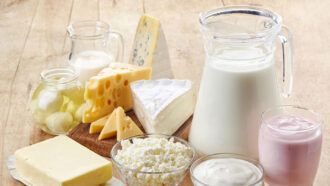 Microbes
MicrobesLet’s learn about useful bacteria
Bacteria do many useful jobs almost everywhere on Earth, from the soil to the seafloor to our stomachs.
-
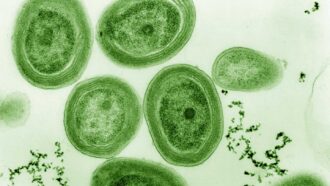 Life
LifeBacterial fossils exhibit earliest hints of photosynthesis
Microscopic fossils from Australia suggest that some bacteria evolved structures for oxygen-producing photosynthesis by 1.78 billion years ago.
-
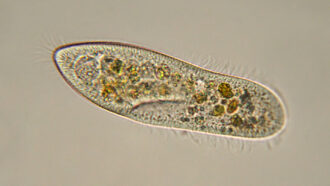 Life
LifeScientists Say: Protist
Unified by a few key traits, these diverse organisms come in all shapes and sizes.
-
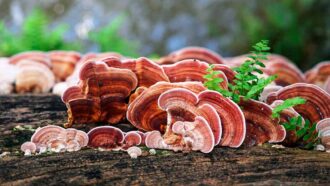 Materials Science
Materials ScienceMade from fungi, this vegan leather can self-heal holes or rips
If made under gentle conditions, leather formed from the “roots” of mushrooms can retain the ability to regrow and repair minor damage.
By Jude Coleman -
 Tech
TechA ‘mini cyclone’ helps detect coronavirus in the air
A new device can detect from seven to 35 coronavirus particles per liter of air in minutes. That’s close to a PCR test’s sensitivity — but much quicker.
-
 Health & Medicine
Health & MedicineHand dryers can infect clean hands with bathroom germs
Hot-air hand dryers are a haven for microbes. A finalist at Regeneron ISEF found that these machines spray germs all over freshly washed hands.
-
 Microbes
MicrobesScientists Say: Virus
A virus must take over a living cell's machinery to make more viruses.
-
 Materials Science
Materials ScienceAnalyze This: Algae behind blue-glowing waves light up a new device
Some algae glow blue when they experience forces. Held in transparent plastic, they now make devices light up in response to gentle pushes and tugs.
-
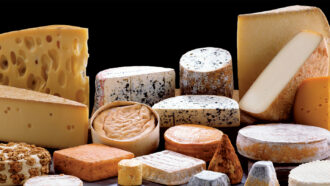 Microbes
MicrobesBacteria give some cheeses their distinct flavors
Linking types of bacteria to specific flavors could help cheesemakers tweak their products — or even develop new cheese flavor.
-
 Health & Medicine
Health & MedicineExplainer: Why it’s easier to get sick in the winter
Low humidity helps viruses survive, and cold weather blunts some of the body’s immune responses — making colds and other viral infections more likely.